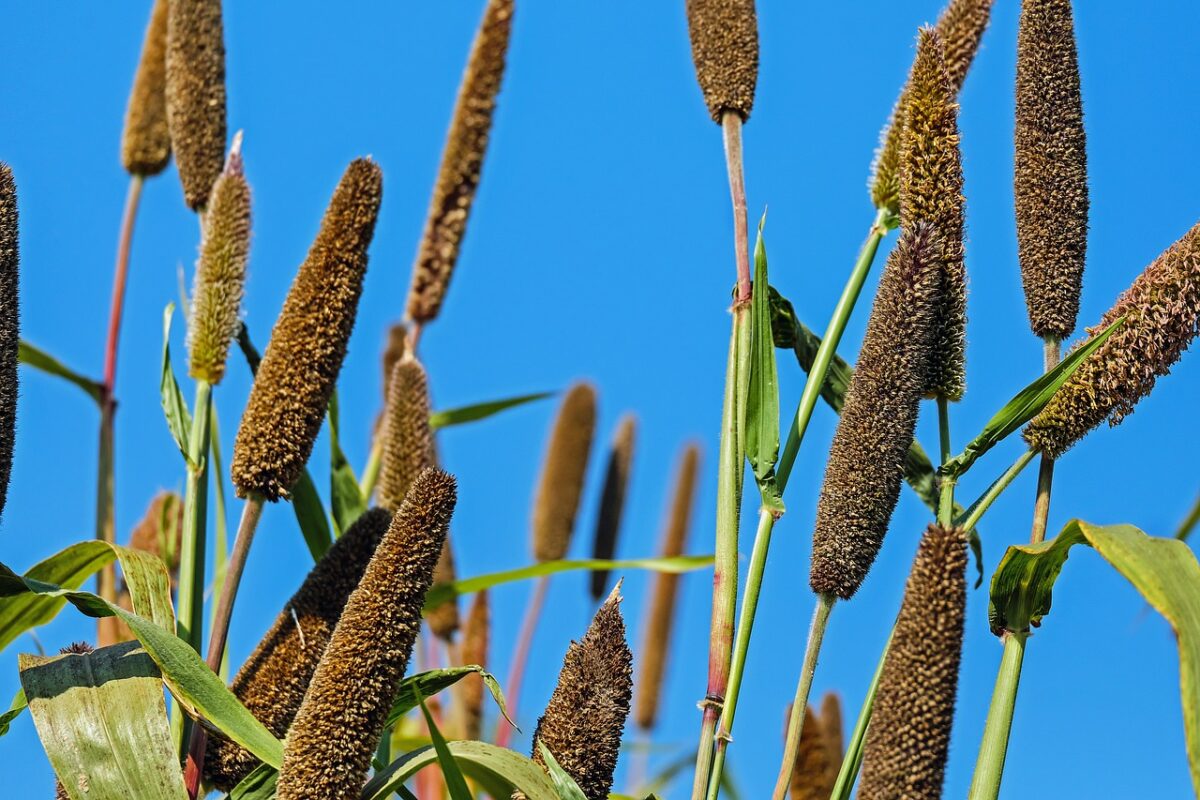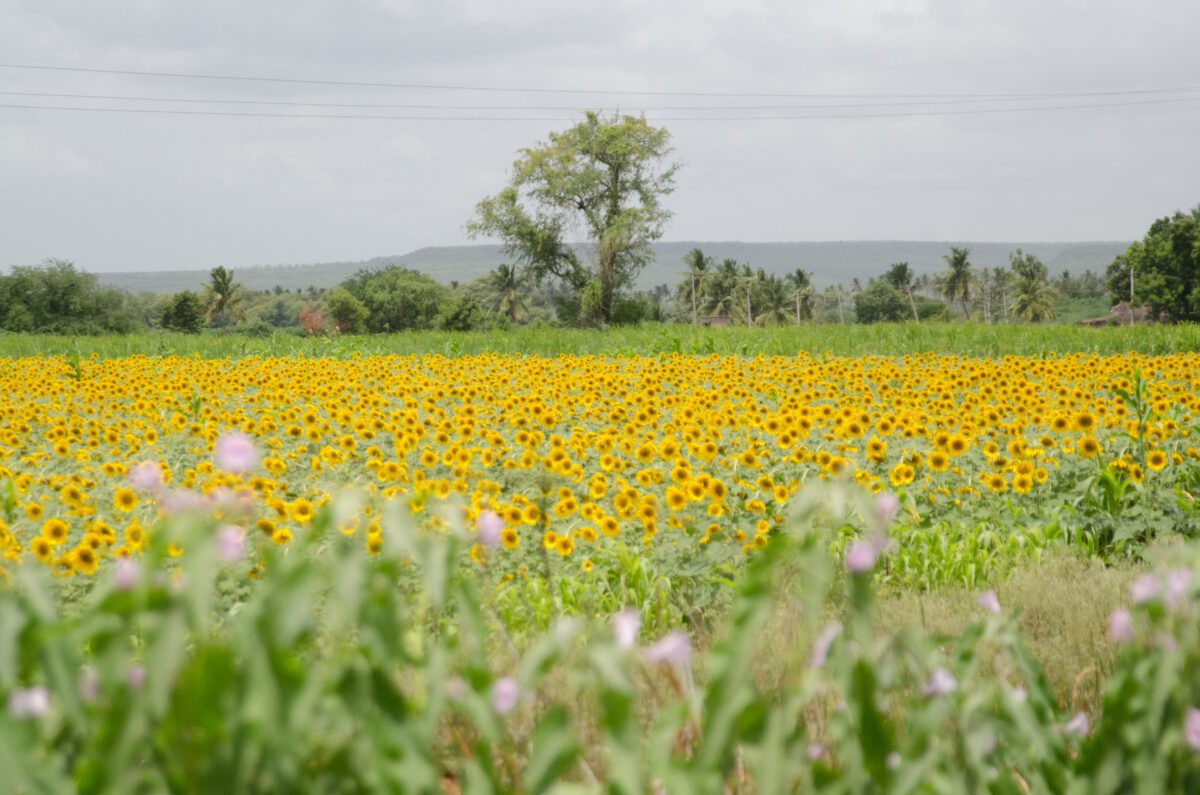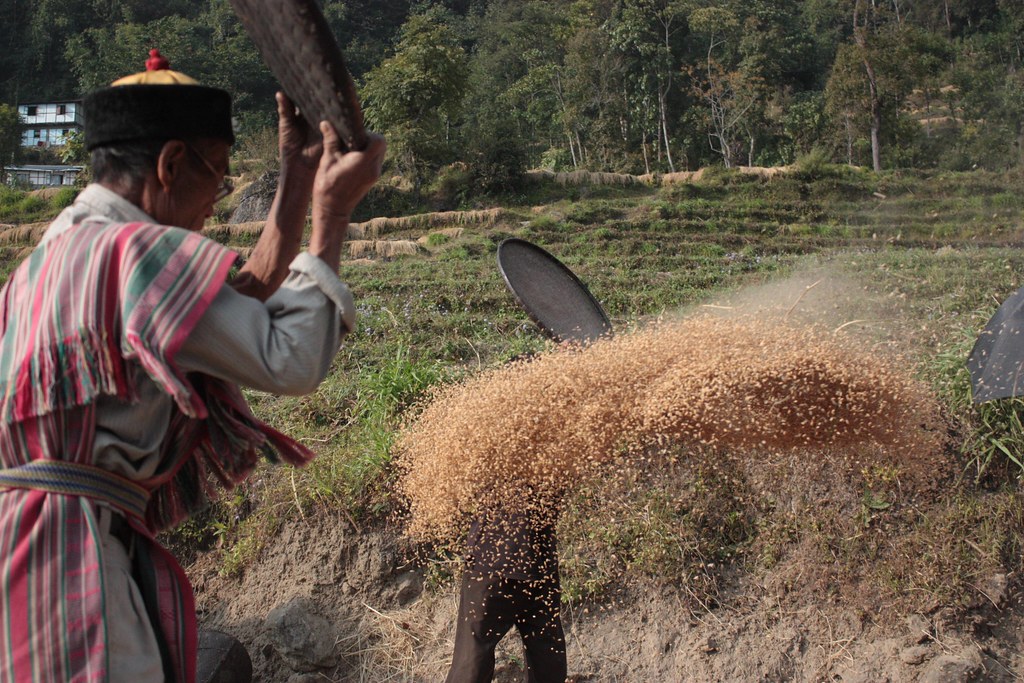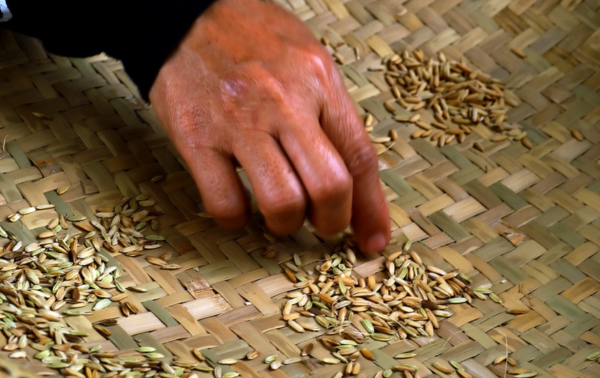From the empowering efforts of The Deccan Development Society to Sahaja Samrudha’s commitment to organic farming, and Beej Bachao Andolan’s revival of Himalayan heritage, discover how these movements are not just safeguarding seeds but nurturing communities, sustainability, and cultural legacies.
The Deccan Development Society
Rooted in Telangana, The Deccan Development Society (DDS) has been nurturing a revolution. The Society was established in 1983, and collaborates with the rural communities – focusing on women hailing from Schedule Castes and indigenous communities, and helping them with sustainable agriculture.
DDS, recognising the importance of women in sustaining livelihoods in rural areas, aims to give them a way to liberate themselves from traditional social structures that often marginalised them. The organisation gives the power to women by starting voluntary “groups known as Women Sanghams”, to empower women by imparting knowledge and resources, thereby giving them the confidence to become change makers and leaders.

One of the main objectives of DDS is encouraging climate-smart agriculture. As climate change currently poses the single biggest threat to livelihoods of agricultural communities, DDS helps them acquire expertise on growing crops that are able to withstand harsh conditions. Millets, which are a group of drought resistant grains and are full of nutrients, have, consequently, become their flagship crop. Through the promotion of millet-based farming methods DDS makes the households food secure and becomes a massive contributor to the income of the families.
They also teach seed sovereignty by establishing a communal seed bank that contains an assortment of native seeds. These seeds are passed down from generation to generation, and, on account of being native to the area, are well adapted to the local environment and more resistant to pests and diseases. Through the supply access of seeds to farmers, DDS reduces the high costs of the controlled commercial varieties and enhances local food production networks.
The battle for a fair and sustainable future industry is larger than just agriculture. DDS is actively advocating for land property rights and social justice for marginalised communities. Through capacity building and legal assistance, they help women fight for their rights and they actively involve women in local governance.
Sahaja Samrudha: Cultivating Bountiful Nature in Karnataka
Sahaja Samrudha, meaning “Bountiful Nature” in Kannada, was founded by a collective of organic farmers in the late 1990s, with the aim to transform agriculture by promoting ecological practices and empowering farming communities.
The collective recognised the implications of conventional agricultural methods for the environment. This, combined with the loss of traditional knowledge due to modern farming methods, has pushed the organisation to take a multifaceted approach. At the very heart of the organisation is an organic farmers network which shares its knowledge, seeds and experience among themselves. This creates a collaborative environment where good practices are shared and the farmers jointly handle their problems.

Sahaja Samrudha understands the central role of seed autonomy. They have been setting up Sahaja Seeds, a brand that is owned by the farmers and provides high quality and organically grown seeds of traditional varieties. This not only enables rich biodiversity but also endows farmers with the ability to get dependable seeds from non-corporate sources, thereby lowering costs.
The organisation does not stop at just supplying seeds. By means of carefully designed training programmes, they provide farmers with the necessary knowledge and skills to thrive in the field of organic farming. This includes training on practices like composting, natural pest control, and water conservation methods. This, in turn, not only improves the soil health and crop yields but also reduces the dependence on expensive chemical inputs which, in the long run, increases the economic viability of organic farming.
Sahaja Samrudha inherently comprehends the significance of creating a network between producers and consumers. They founded Sahaja Organics which acts as a link between farmers who followed organic farming techniques and local grocery stores. The CSA model also makes prices fair for farmers and makes it possible for consumers to buy fresh, healthy and chemical-free products.
Besides these above mentioned practices, Sahaja Samrudha is also involved in the dissemination of knowledge through printed materials, workshops, and market places for farmers. They engage with scientists for the development of organic farming techniques and promote policies that protect sustainable agriculture concerns.
Beej Bachao Andolan: Reviving the Himalayan Heritage
Located in the majestic Himalayas, Beej Bachao Andolan (Save the Seed Movement) is dedicated to the conservation of the region’s prosperous agricultural legacy. Initiated by environmentalist Ramesh Tewari in the 1980’s, the movement combats the reduction in biodiversity caused by the spreading of the same commercially produced seeds to various parts of the country.
The Himalayas are home to a unique set of indigenous crops that are very well-adapted to the unforgiving environment and high altitude. However, farmers have shifted to high-yielding and commercial varieties abandoning the heirlooms seeds, which is not only a threat to the traditional mosaic of Himalayan farming, but also makes communities more dependent on external resources and more vulnerable to climate change.

Beej Bachao Andolan aims at reviving traditional seed varieties through community seed banks and farmer education programs. These initiatives encourage farmers to return to the old methods that are much more sustainable and enduring in the long run.
Furthermore, this movement has the goal of formulating new policies that will guarantee farmers’ rights and seed diversity. By regaining power over seeds, Himalayan communities manage their food security, maintain their cultural identity, and contribute to global food diversity and sustainability.
In addition to seed protection, Beej Bachao Andolan recognises the interconnectedness of agriculture and culture in the Himalayas. Traditional seeds are not just food, they are embroidered in the social fabric of the region and consequently stand for generations of wisdom and adaptability.
The movement does not just passively document these cultural connections, but also actively celebrates the uniqueness of this heritage. The organisation conducts seed festivals where farmers exchange not only seeds but also their family stories and traditional recipes. It not only consolidates community pride but also reinforces traditional knowledge of agricultural heritage into the younger generations.
By – Mrinalini Natarajan
Sources:
https://indiatogether.org/the-seeds-of-revolution-op-edhttps://feminisminindia.com/2020/07/15/deccan-development-society-dalit-marginalised-women-environment/https://dlc.dlib.indiana.edu/dlc/bitstream/handle/10535/6028/Affirming%20Life%20and%20diversity.pdf?sequence=1&isAllowed=yhttps://sdgintegration.undp.org/%E2%80%98untouchables%E2%80%99-internationally-celebrated-farmers
https://cgspace.cgiar.org/server/api/core/bitstreams/6836194a-251b-49f5-9d93-5a5b8d831a5a/content
